Advanced Cookie Scanner
Get the most accurate cookie scan without spending hours!
14-day free trialCancel anytime
Why sign up to scan your website?
in-depth scan
scans for updates
compliance features
Powering
1.3 million websites
Identify your cookie footprint with accuracy and get a detailed cookie audit report
Get a full cookie audit with our cookie scanner




Cookie compliance made easy
Advanced website scanner
Scan against a database of 100,000+ pre-categorized cookies with descriptions. For large websites, schedule cookie scanning and automate it completely.
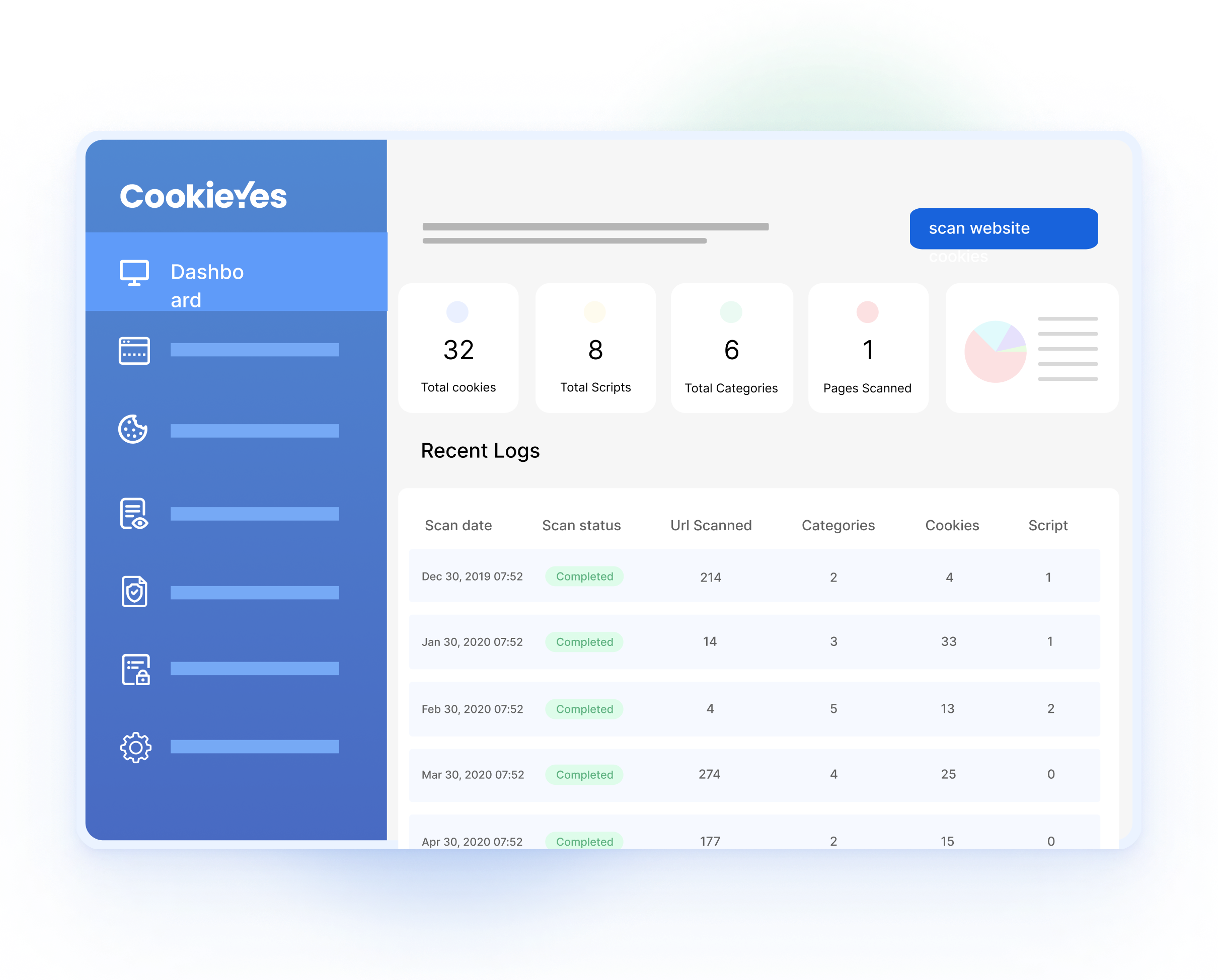
Full banner customizations
Display a cookie banner with customized colour, content, behaviour, branding and CSS to align with your website’s branding.
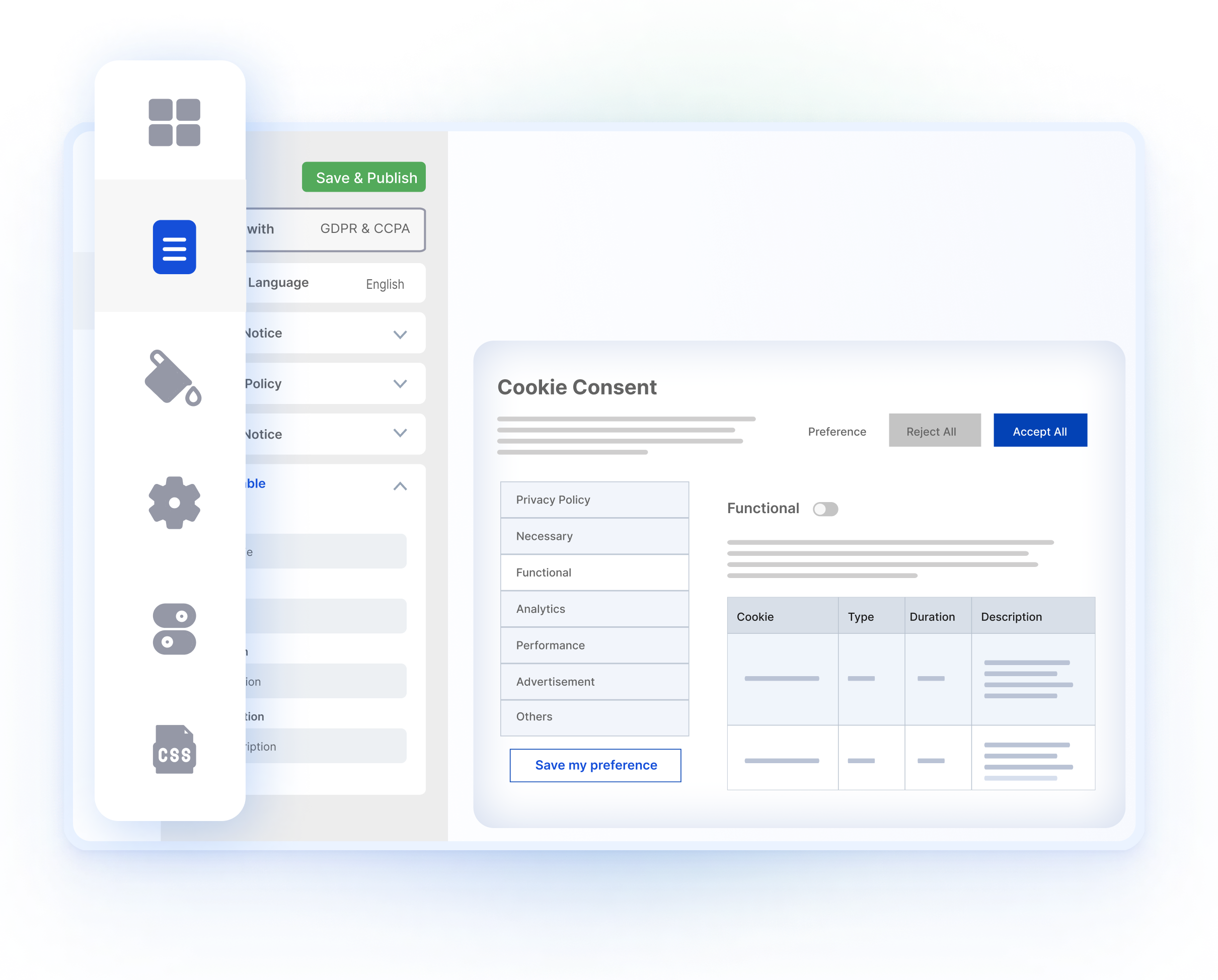
Automatic cookie blocking
Automatically scan and block third-party scripts until the user gives consent and ensure hassle-free cookie management and compliance.
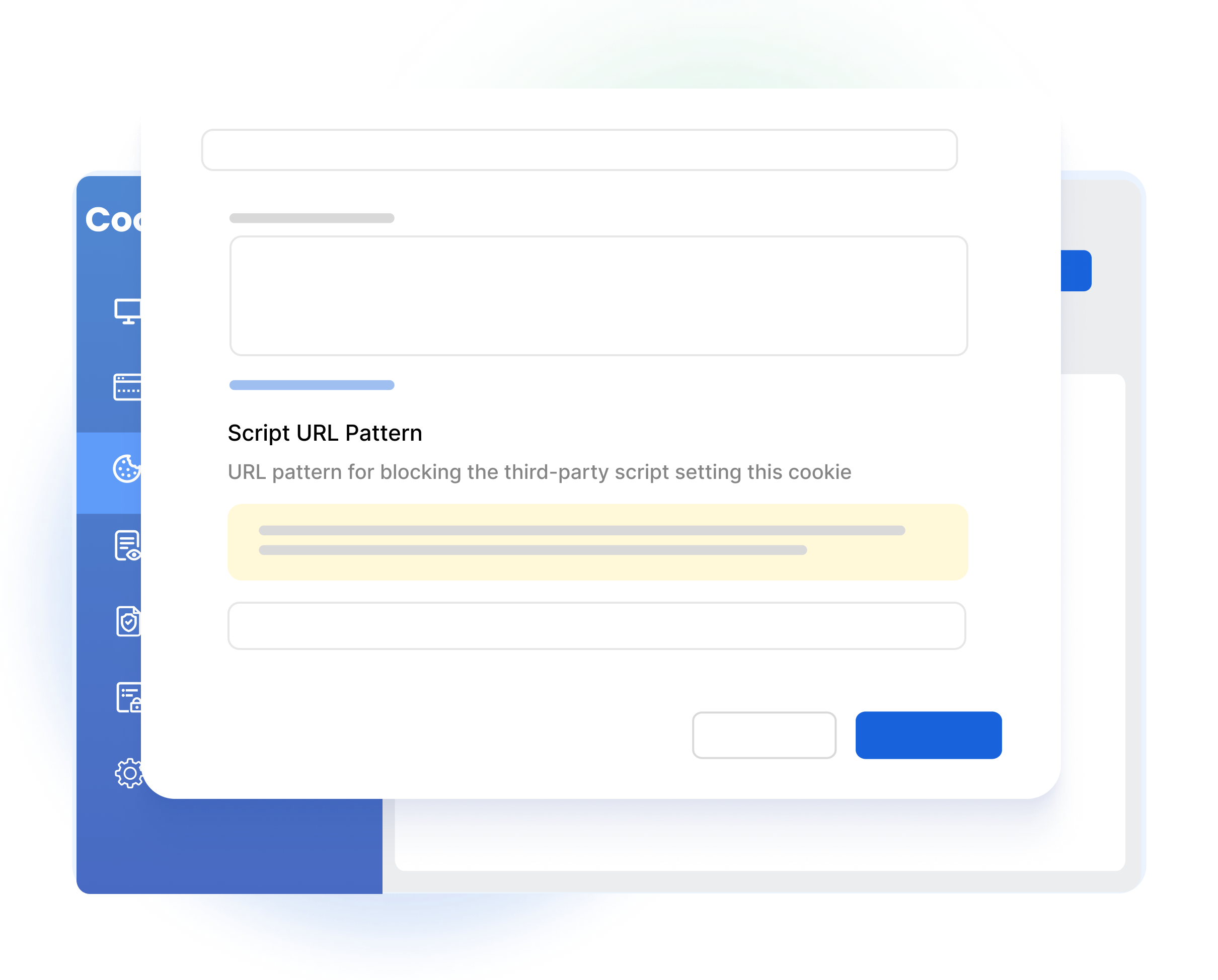
Powerful integrations
Implement on any CMS/custom-coded website and integrate with Google Consent Mode, Tag Manager and get exportable consent logs.
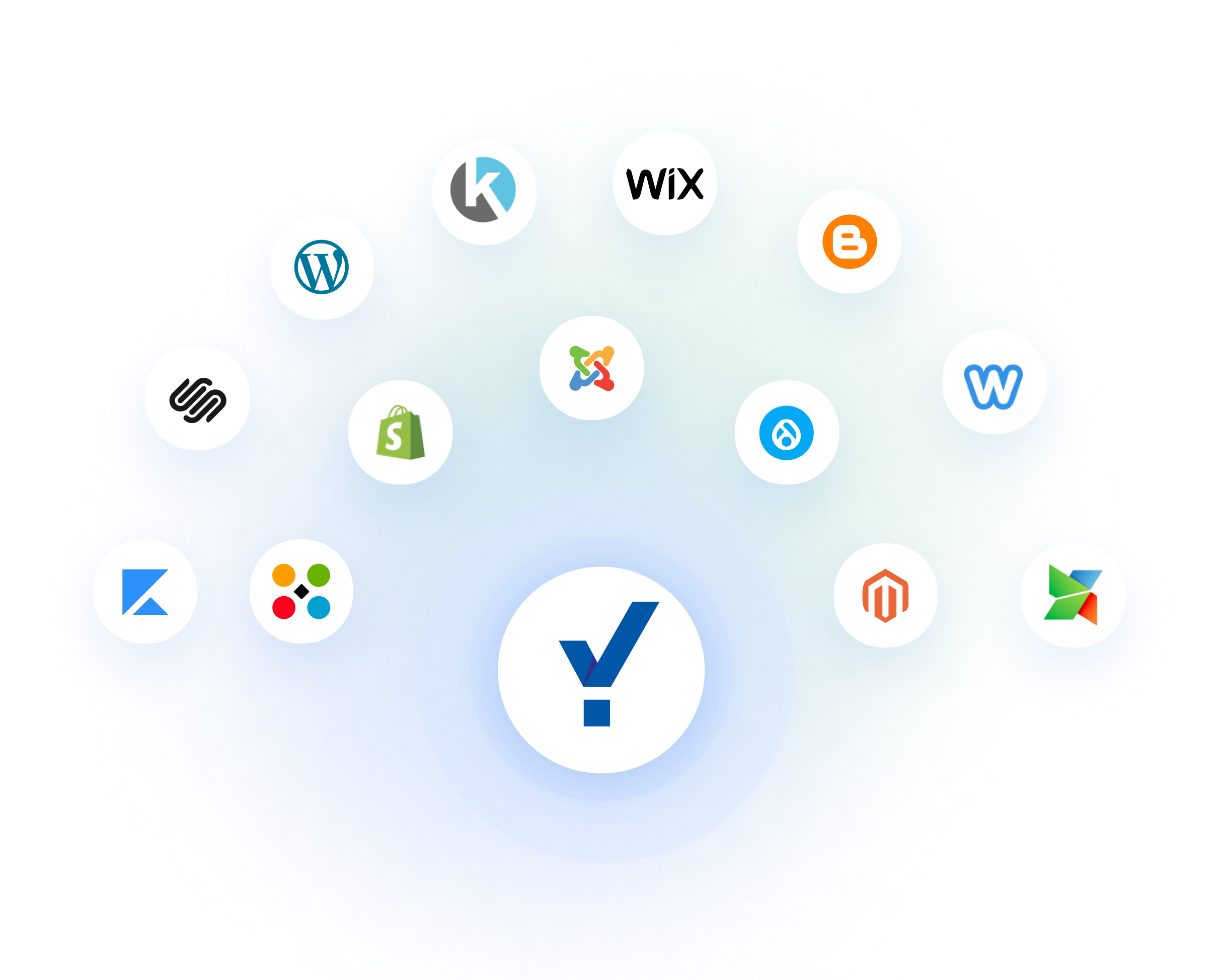
Free policy generators
Generate cookie policy and privacy policy in minutes with our easy-to-use template and get your website’s legal compliance covered under one roof.
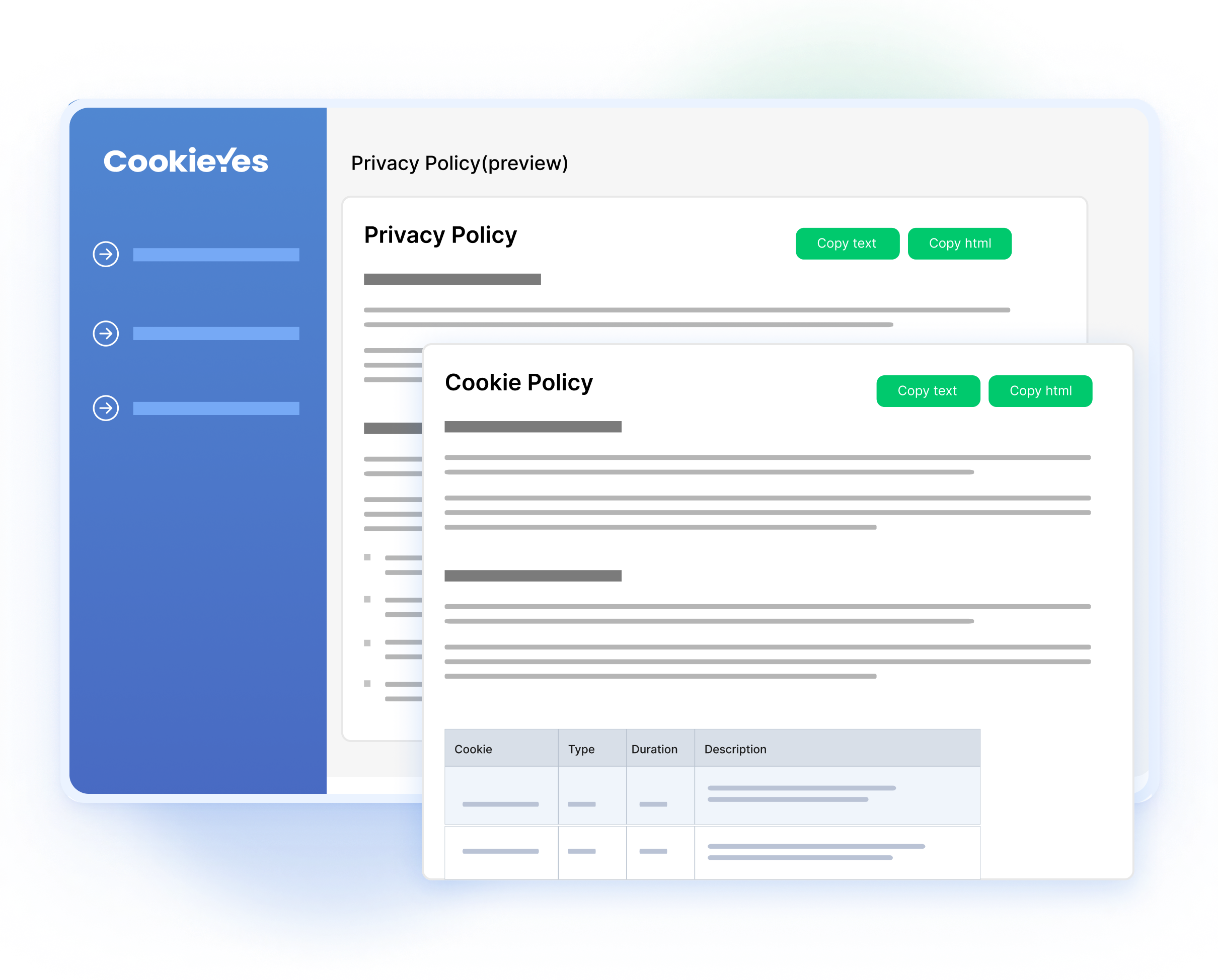
Privacy-proof your business with the most trusted tool
Scan, identify and foolproof your cookie compliance with a consent solution trusted by 1 million+ businessess worldwide.
Free for 14 daysCancel anytime
Loved by
top teams across industries
Rated 4.8/5 by 139 users
Rated 4.7/5 by 42 users
“Way better than any other cookie tool out there. This tool unburdens you with all you need for getting GDPR setup.Really nice interface with great logic to set it all up!”
Alexander V
Creative Director
“Fantastic GDPR-compliant tool. CookieYes makes your website GDPR-compliant, with its set of cookie consent information. These will be placed and managed on your website without any need for web development knowledge or experience.”
Adam
Marketing Coordinator
“CookieYes makes everything simple. I love the convenience of having an embeddable cookie banner that you can style to suit your brand. The Dashboard lays everything out for you and is super helpful.”
Nicole C
Creative Director
Cookie Scanner FAQ
Some cookies collect personal data from users that may be used to identify them. According to GDPR/ePrivacy Directive, you cannot collect user data without their active consent. In CCPA, you must provide an opt-out option if you collect personal information. To find out if you use cookies that collect and use personally identifiable information from your visitors, you should scan and identify cookies set by your website.
A website cookie scanner is a tool that scans your site’s web pages, identifies cookies and similar tracking technologies on the site to automatically generate a detailed cookie audit report.
CookieYes’s advanced cookie scanner crawls through your website and activates all cookies set by the server. It identifies the cookies based on their properties and matches them against the in-built cookie database. Then, it generates a detailed scan report with cookies categorized as: Necessary, Functional, Analytics, Performance and Advertisement. You will also find the Cookie ID, domain, duration and description within the report.
The CookieYes cookie checker will detect and classify your website’s cookies into these categories:
Necessary
Necessary cookies are required to enable the basic features of this site, such as providing secure log-in or adjusting your consent preferences. These cookies do not store any personally identifiable data.
Functional
Functional cookies help perform certain functionalities like sharing the content of the website on social media platforms, collecting feedback, and other third-party features.
Analytical
Analytical cookies are used to understand how visitors interact with the website. These cookies help provide information on metrics such as the number of visitors, bounce rate, traffic source, etc.
Performance
Performance cookies are used to understand and analyze the key performance indexes of the website which helps in delivering a better user experience for the visitors.
Advertisement
Advertisement cookies are used to provide visitors with customized advertisements based on the pages you visited previously and to analyze the effectiveness of the ad campaigns.
CookieYes scanner scans your website against a database of 100,000+ cookies that are pre-categorized and defined.
The scanner will crawl through your website and detect all the HTTP/Javascript and HTML5 Local storage cookies, including some of the cookies set during a user’s interaction with a cookie banner on a website.
To check your website’s cookie compliance, you need to identify the cookies set by your website. To find that, you can scan your website with a free tool like the CookieYes cookie scanner and access the detailed cookie scan report.
To check cookies on a website, you can scan the site’s URL on the free cookie scanner by CookieYes and you will get a detailed list of all the cookies listed in categories, their duration and description/purpose.
Secure your cookie compliance easily
Mitigate your compliance risks with a cookie consent solution designed for businesses like yours.
14-day free trialCancel anytime
